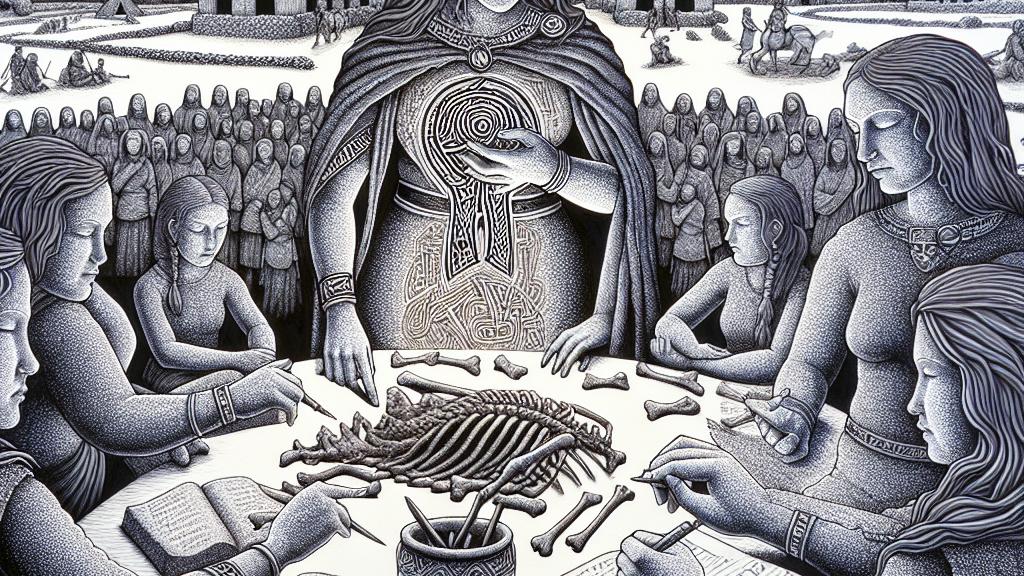Discovering Women's Power in Ancient Britain
Overview
- Recent DNA studies unveil the remarkable influence women held in pre-Roman Britain, redefining our understanding of their roles.
- The unique custom of matrilocality allowed women to thrive within their communities, showcasing their pivotal position.
- Historical narratives often downplayed women's contributions, but new findings challenge and enrich this perspective.

Women at the Center of Society
In southern England, particularly at the intriguing archaeological site of Winterborne Kingston, groundbreaking research is reshaping our understanding of gender roles in ancient Celtic society. By examining DNA from about 50 skeletons, researchers uncovered a fascinating trend: a majority of these individuals traced their ancestry through their mothers. This matrilineal focus reveals how essential women were in constructing familial and societal identities, challenging the long-held belief that lineage was predominantly male-driven. Just think about it—these women were not just passive figures; they were powerful matriarchs, influencing the direction and values of their communities!
Matrilocality: A Unique Marriage Custom
Central to this society was the enchanting practice of matrilocality, where husbands relocated to their wives' communities upon marriage. How empowering is that? This system enabled women to retain their ancestral homes and wield considerable authority in household and community matters. Dr. Lara Cassidy from Trinity College Dublin emphasizes that this arrangement gave women unprecedented control over resources, family decisions, and social standing. Unlike most historical practices, where women often moved into their husbands' families—sometimes at the expense of their own identities—matrilocality allowed women to flourish and lead in their own right, showing that female power was not an anomaly but rather a community norm.
Historical Context and Misconceptions
Although many contemporary narratives overlook women's significant roles, ancient texts and archaeological artifacts reveal a different story filled with strength and resilience. Consider Boudica, the fierce queen who led a rebellion against Roman rule—her legacy is a powerful reminder of women's political agency during tumultuous times. Early historians, however, often exaggerated the barbarism of these societies and misrepresented women's contributions, seeking to portray an image of chaos rather than structure. Yet, as modern archaeology and genetic research unveil new data, we see women shaping the political and social landscapes of their communities, crafting their destinies with resilience and determination. These findings compel us to rethink the narratives surrounding ancient Britain, recognizing women not as mere footnotes in history, but as vital architects of their culture.

Loading...